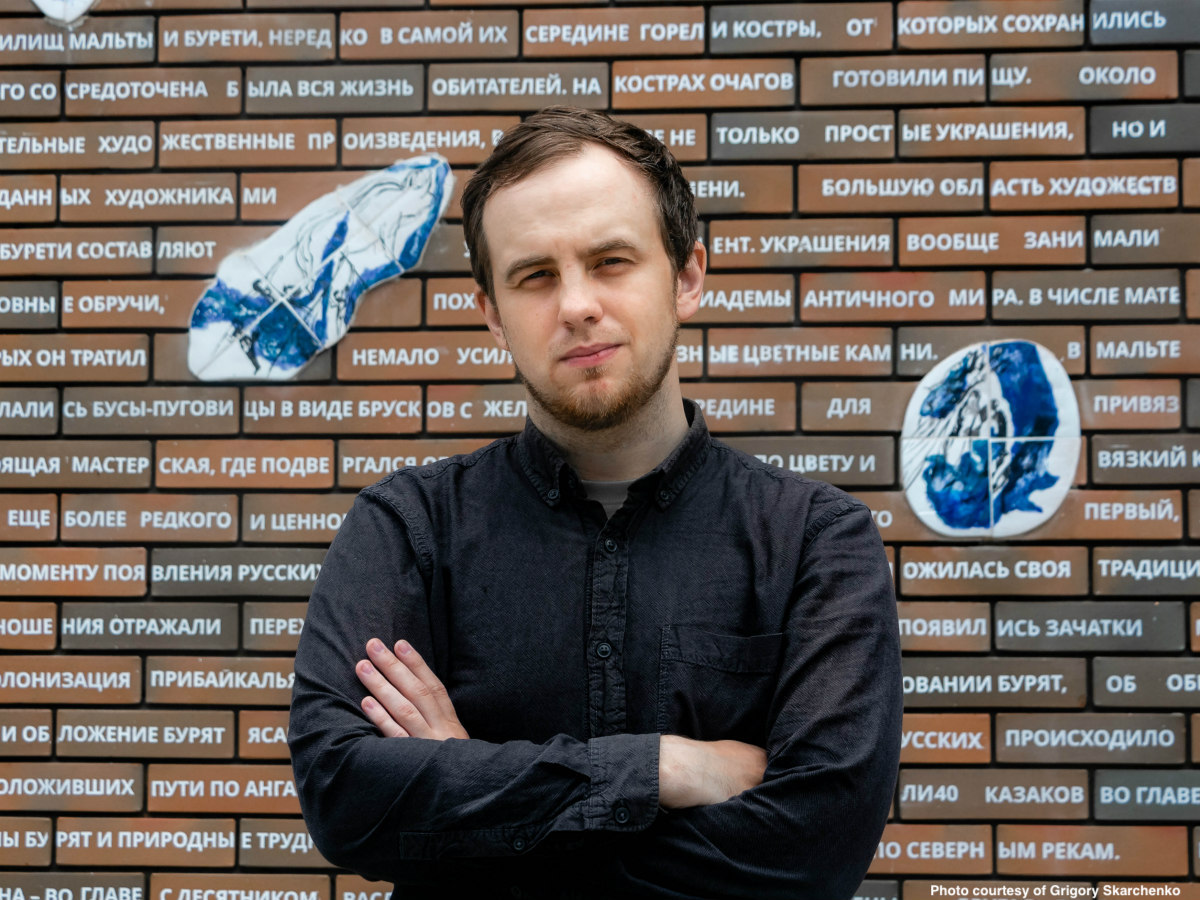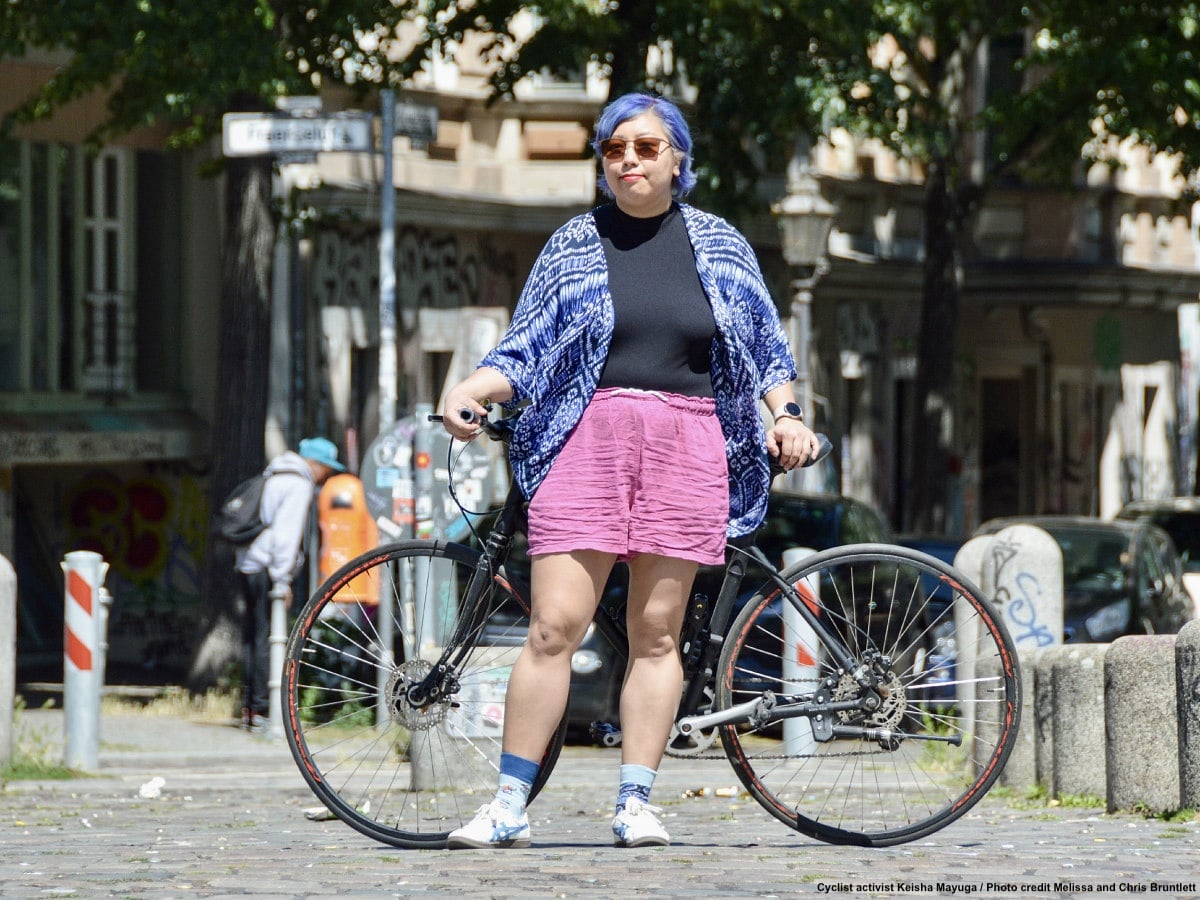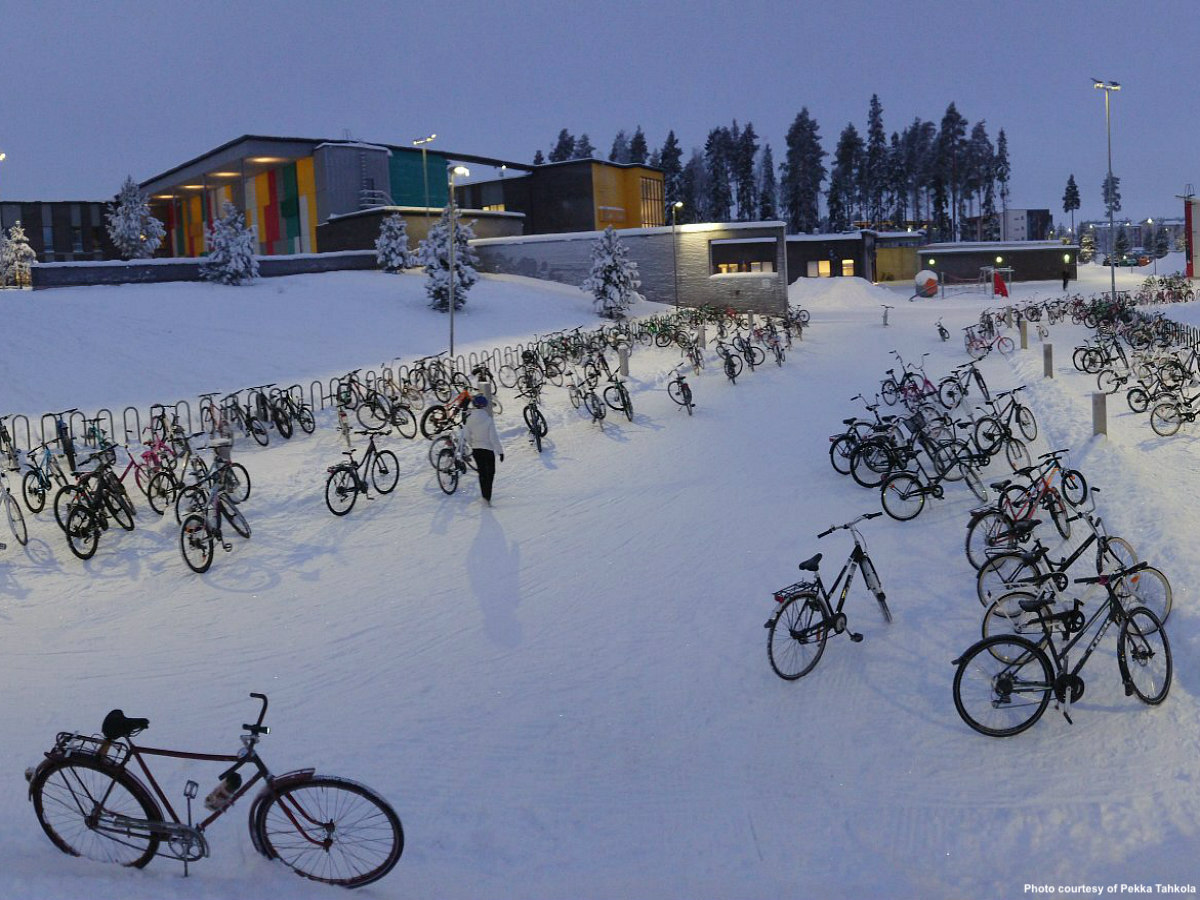When I first heard of Grigory Skarchenko, my first thought was why a cycling civic activist would have to leave Russia, his homeland — and could possibly be listed as a “foreign agent” there. But Skarchenko is also a lawyer with a vast knowledge of urban policy for cities across Russia, and at some point during a conversation, I realize how his civic activism could turn into a threat under authoritarian rule.
Skarchenko pioneered the cycling scene that emerged in Irkutsk in 2012. Initially, informal gatherings of cyclists prompted citizens to claim sovereignty over everyday issues, such as cycling, public transportation, and road safety. Then he became the man the city administration office turned to for these issues. But that all fell apart in 2022 with the reality of a war.
Several weeks after the Russian invasion of Ukraine, the Russian Government introduced a new criminal law to punish citizens who are outspoken against the war. “Just for words, you can get eight years in jail,” he says. Skarchenko had to move quickly; he grabbed some money and traveled to Bishkek, Kyrgyzstan, where he was granted a humanitarian visa by the German government.
Since September 2022, Skarchenko has lived in Leipzig. He speaks in English on a video call from his flat, but admits some difficulties. “I am mixing up the languages,” he says ahead of a test he will take in German. Skarchenko has a perpetually concerned look on his face, although there are moments in our conversation when he shows a smile and a warm manner.
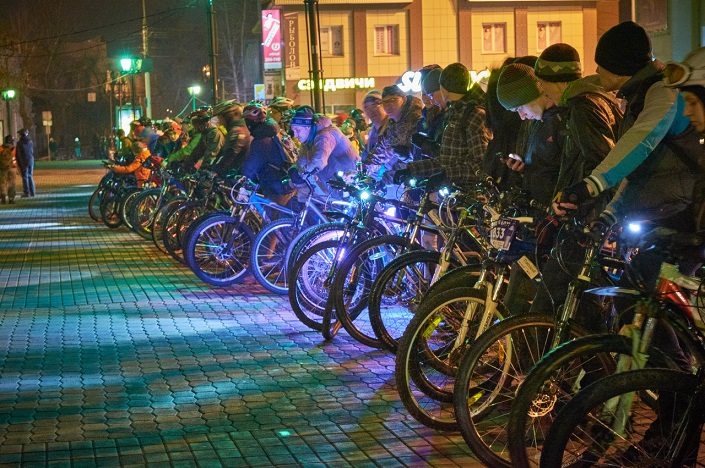
One such occasion comes as he talks about how he and his cycle gang called themselves the “bicycle fireflies” — and in those events, at night and in freezing temperatures, this urban activism, unusual in Russia, captured the public’s attention in Irkutsk. Viral publications on social media followed, as well as TV coverage. He wistfully recalls that as the moment when everything kicked off. They managed to gather over 3,500 cyclists at public events, and Skarchenko founded VeloIrkusk, the main cycling organization in the Irkutsk region.
Even though people in Irkutsk were dissatisfied with the city administration and did not engage much with politics, Skarchenko found that his fellow citizens were more willing to exert influence on road safety and mobility. “This situation gave me some power to speak with the local authorities.”
I ask Skarchenko whether his engagement with the local administration felt like walking on a minefield; any sign of self-organization could be seen as a threat to the Russian authorities in Moscow. Yes, he admits, it was always a thin line, but it worked. “We always found a good way to communicate that we were the solution to the problem, not the problem. But they also knew that we had a big media outreach that we could use to publish videos and articles about their failures on safety.”
Also, “Every time I spoke with the local authorities about urban issues, I provided them with ideas that could help them operate with the federal government and build a system of trust,” says Skarchenko. Actually, he continues, there has always been “some conflict” between the federal government and the city governments, partly because Moscow brutally uses its financial clout to control local governments.
He shows no doubt that Russian cities have no money. “While our Russian taxation system sends all the money to Moscow and Saint Petersburg, other Russian cities struggle to introduce things like bicycle lanes, bus lanes, and some other safety features,” explains Skarchenko. The only opportunity for local governments to address these is to ask the federal government for additional financial resources. Therefore, it’s up to the federal government to decide if “you’re a bad mayor, or a good one who can, for example, provide good public transportation to citizens.”
***
Over the course of a decade, Skarchenko’s legal skills and understanding of Russian Traffic Rules and modern transportation systems enabled him to navigate this rocky environment. His name became synonymous with Irkutsk’s transport policy and the wider region, and he greatly influenced its development towards green mobility and people’s safety above cars. Together with his team, he found creative ways to acquire resources, such as online crowdfunding or sponsorship at major public events.
“We were trying to make something from nothing, and we succeeded,” he smiles again and adds proudly, “Something that you could physically touch in Irkutsk.” Skarchenko’s teamwork showed effective results: the creation of the first bike paths on the streets in Siberia, the construction of a platform in the perilous location of a tram station, and the implementation of another pedestrian crossing with a traffic light (in a place where previously only an overground pedestrian crossing with bad accessibility was available).
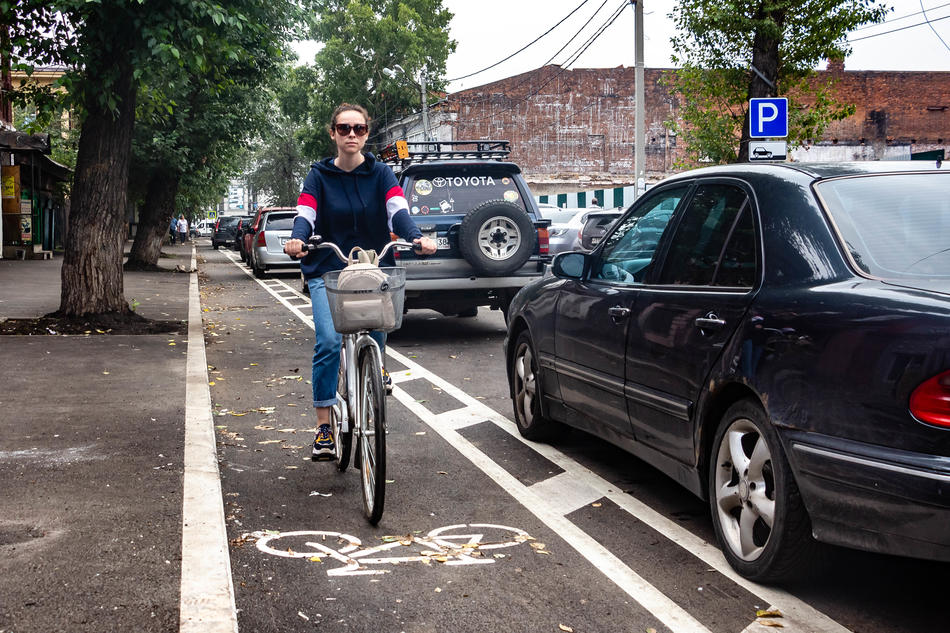
In the last year and a half before the war, Skarchenko joined the “City Projects Foundation” and headed its branch in Irkutsk. This organization was the biggest organization for urban matters in Russia, founded by Maxim Yevgenyevich Katz, a YouTuber, political figure, and member of the municipal assembly of the Shchukino district of Moscow (2012–2016), and Ilya Aleksandrovich Varlamov, a journalist and well-known vlogger.
At the beginning, City Projects Foundation operated only in Moscow and made significant improvements, including changing Uber’s policy in the capital. From there, they expanded into other regions of Russia and opened additional branches, essentially leveraging the urban activism of local communities like Skarchenko’s to give local governments a bigger platform for reforms.
On April 19, 2021, a minivan hit a woman who was crossing the street and killed her. A few weeks later, Skarchenko and his team learned about the accident from the police report and then conducted their own investigation, interviewing witnesses and obtaining camera footage. “Because nobody noticed this death in the center of Irkutsk, it was nowhere in the media nor discussed on social networks,” says Skarchenko. So he would stand at that fatal intersection of Rossiyskaya and Marata streets, in the center of Irkutsk, to denounce the tragic accident on social media and said: “City Projects Foundation in Irkutsk considers it important to analyze what happened and propose to the administration to make a deadly intersection safer.”
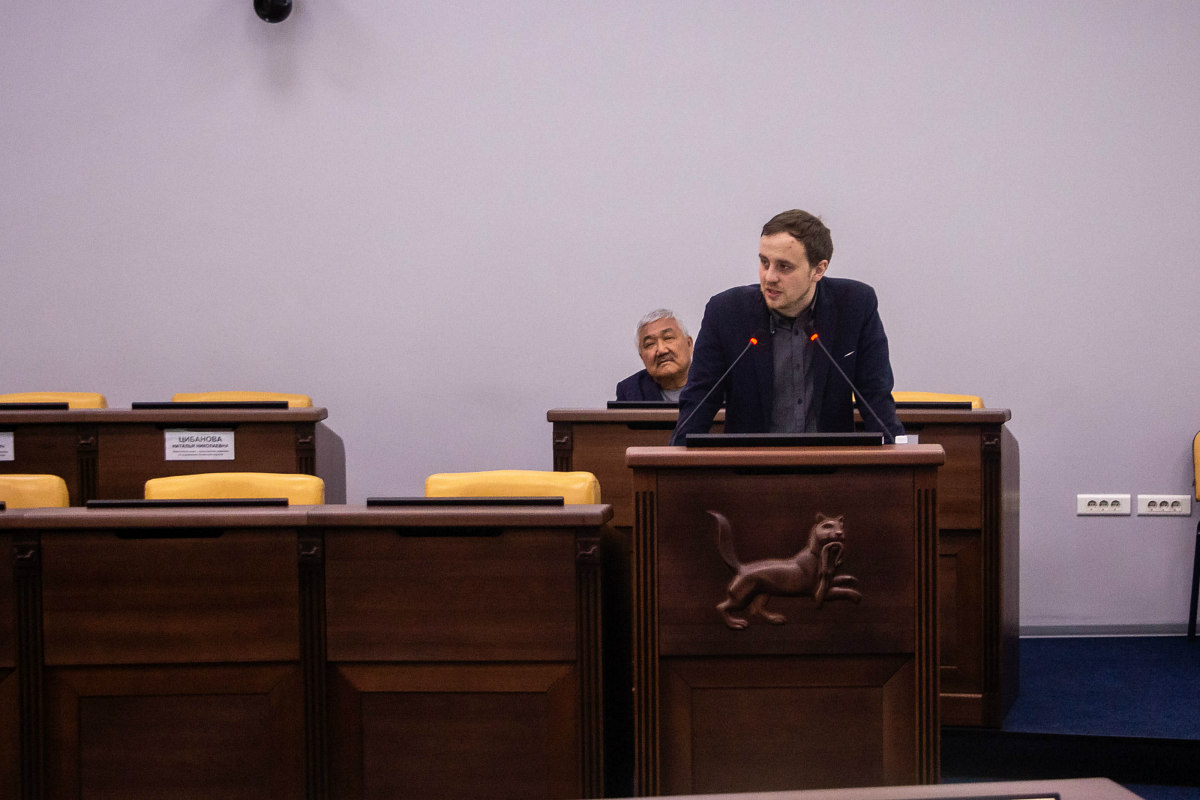
***
Road safety failures provided rare ammunition for public criticism to influence policies rooted in outdated Soviet-era street design standards. “Our Irkutsk branch was really successful and we had this really good media support from the Moscow office of the Urban Project Foundation and through federal media influence,” he explains.
City Projects Foundation went one step further. They already had a representative in the city parliament of Moscow, and “we were trying to have some of our representatives in the federal parliament.” But their candidates didn’t win the elections, whose results, Skarchenko says, were rigged because of differences between the electronic and manual voting systems. “After the war started, we understood why they did it: because they didn’t want to have any voice against the war in the Russian Parliament,” he explains.
Outraged, and before Russia invaded its neighbor, the organization made an anti-war video for YouTube. As a result, on 24 August 2023, Maxim Katz, co-founder of City Projects Foundation, was arrested in absentia (he lives in Israel) by the Basmanny District Court on charges of “discrediting” the Russian Armed Forces. He was given an 8-year sentence in absentia. And Ilya Varlamov, the other co-founder, was declared a “foreign agent” by the Russian Ministry of Justice on 23 May 2023. Skarchenko couldn’t bear the risk. “I had a really good relationship with Irkutsk local authorities. But the problem has always been the federal government, of course,” he says.
Skarchenko might not be the “foreign agent” at the top of the list, but he left Russia because “I want to be free to say all that I want. I could stay in Russia and do nothing. Perhaps I could be part of the local administration in Russia, but you would have to obey many rules. I always say that it’s not really effective for me because you can’t change anything,” he explains.
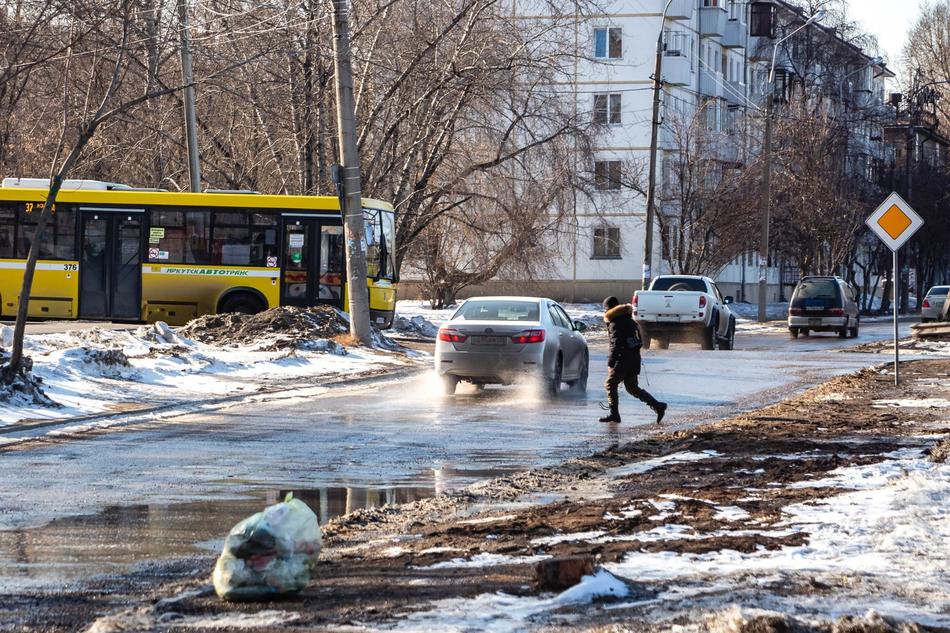
Before the war, “We felt really free in the urban field of politics. We could do a lot regarding cycling and broader urban planning. Later on, it was the base to make some political changes as well. When the war began, it was a real shock for us.”
Nearly two years on, however, Skarchenko tells me they see a little window of hope, while Vladimir Putin is choreographing his re-election as president. From Germany, he and other members of City Projects Foundation are using their local community networks to successfully collect signatures for the only anti-war opposition candidate for president, Boris Nadezhdin.
Skarchenko knows he won’t be back in Russia soon. In the meantime, he would like to work in the city administration of a German city to gain experience that will be useful when he returns home. He feels the responsibility to help restore Russia to a democratic country.
In a paper entitled “Defending One’s Backyard: Local Civic Activism in Moscow” at the Carnegie Endowment for International Peace in 2017, Andrei Kolesnikov and Denis Volkov wrote that “This fight for backyard sovereignty has the capacity to expand into a fight for a city district, an entire city, or perhaps even the whole country. However, this shift toward such large-scale activism logically would lead to overt politicization and engagement with issues that are not as ‘close to home’.” But they admit that not all activists are ready for this. Skarchenko and his peers are.
